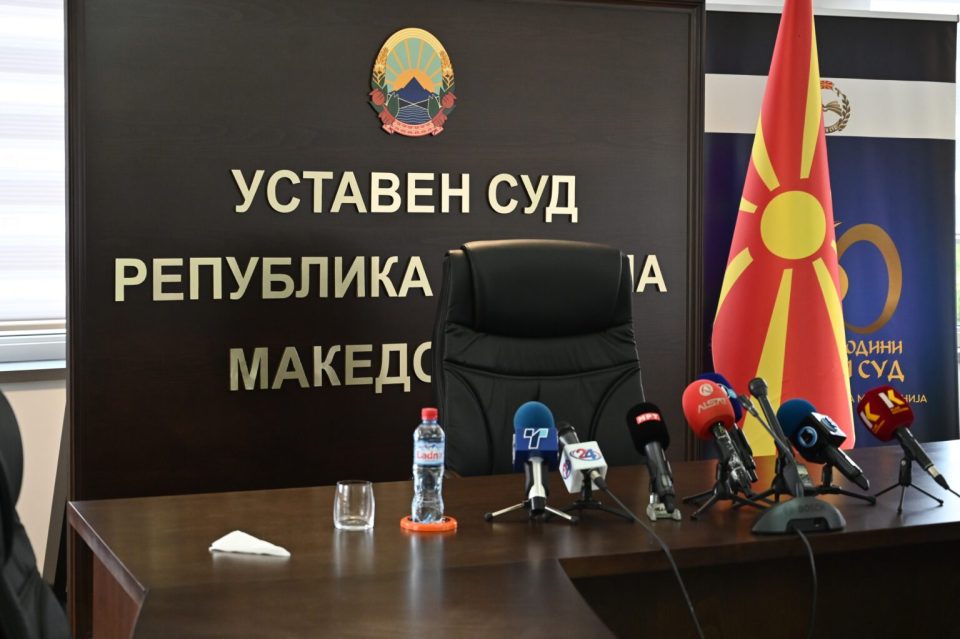Whether the country is on the brink of anarchy will become clearer after the Constitutional Court issues its rulings on the Law on Languages in October and on the “balancer” earlier this month. Prime Minister Hristijan Mickoski expressed confidence that no politician would defy the Constitutional Court’s decision and insisted that the country is not in a state of anarchy. This stance contrasts with that of the Albanian political bloc, which equates interference with the Constitutional Court’s rulings on the Albanian language and the balancer to a coup d’état.
Mickoski’s statement suggests that he does not intend to compromise on court decisions, even in the face of strong rhetoric and warnings from his government partner, Vredi. When asked about the Constitutional Court’s sudden decision to address the Law on Languages, which had been delayed for five years, SDSM leader Venko Filipce declined to comment on the actions of another institution.
The opposition party DUI criticized the government’s handling of the Albanian language and the balancer, describing it as a deliberate provocation. Ali Ahmeti’s party expressed concern over statements made by VMRO-DPMNE, ZNAM, and other government representatives opposing the balancer and the official use of the Albanian language. They also took issue with comments from the President of the Constitutional Court, who sought to “resolve dilemmas” regarding the balancer and the Law on Languages.
The Language Application Agency also weighed in, warning that the Constitutional Court President’s statement is a dangerous move for Macedonia, as it touches on sensitive issues like the Albanian language, which was addressed by the 2019 Law on the Use of Languages. The Agency described the initiatives against the Albanian language as political, nationalist, and anti-human, emphasizing that the language belongs to the Albanian people and poses no threat to anyone. They argued that efforts to exclude Albanian from official use are rooted in an old, tension-inducing idea.
Kostadin Kostadinovski, President of the Constitutional Court, noted that the case regarding the Law on Languages is based on 13 different initiatives from citizens, political parties, and associations, dating back to 2019. He acknowledged the public interest and potential consequences if the Court decides to repeal the law, keep it in force, or amend certain provisions, which could lead to dissatisfaction. When asked if the Court could strike a balance without disturbing political and ethnic relations in the country or creating security challenges, Kostadinovski emphasized that the Court bears the heavy responsibility of ruling on such delicate issues, which is why it exists. He stressed that Macedonian society should not be left in suspense while awaiting the Court’s decision.
Former Constitutional Court President Dobrila Katsarska previously announced that the Court was expected to make decisions on the Prespa Agreement and the Law on Languages this fall. However, those cases were not addressed because the Court’s composition had been incomplete for over a year.
Political analyst Ivo Rangelovic, speaking to “Sloboden Pechat,” argued that the quality of the system must prioritize supranational interests, placing ethnic and religious identities in the background.
Politics often knows how to be hypocritical, and this case is another confirmation of such a thing. Namely, not only the Albanian parties, but probably all of us forget that it was precisely the balancer, the Law on Languages and similar laws that were forced to pass because of the threatened security in the country, the coup d’état and all other violations of Macedonia’s sovereignty, and not the other way around. After more than two decades, it has been shown that these tools technically helped the process of emancipation and integration of minorities in society, but essentially did not result in added value. I believe it is time to face all political taboos, because the system we live in is not only dysfunctional, it is unsustainable and leading to ruin. The quality of the system must represent a supranational interest, legitimately putting all ethnic and religious signs in the background – says Rangjelovic.





Comments are closed for this post.